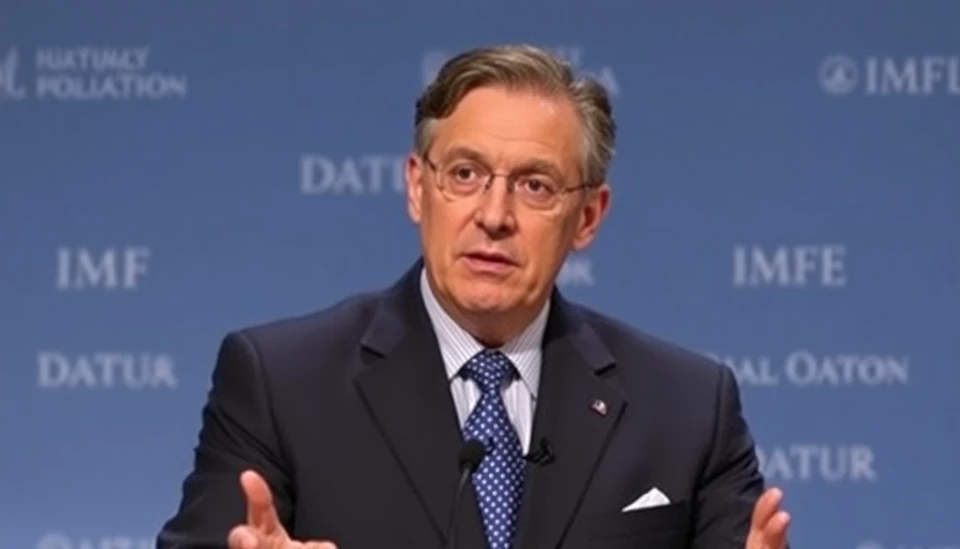
The International Monetary Fund (IMF) has recently issued a cautionary statement regarding the potential fallout from the ongoing trade skirmishes between the United States and China, projecting significant economic challenges ahead for both nations in 2026 and beyond. The report emphasizes that the prolonged tension could lead to ramifications that extend far beyond mere tariffs and trade barriers, reshaping global economic dynamics.
In its latest analysis, the IMF outlined potential scenarios stemming from the escalating trade conflict, which has been characterized by reciprocal tariffs and retaliatory measures. The organization foresees a deterioration in trade relations that could hamper economic growth for both countries, with adverse effects rippling across the global economy. The IMF noted that a partial decoupling of the U.S. and Chinese economies could lead to lower GDP growth, technological stagnation, and diminished consumer choices.
The IMF's projections suggest a decline in bilateral trade volumes, which, if maintenance of the current course persists, could reduce economic output significantly. The economic body pointed out that the two largest economies in the world are economically intertwined, and as such, the consequences of their trade row will not only impact domestic markets but also affect global supply chains and trading partners alike.
“If the trade conflict continues, we risk entering a period where economic fragmentation becomes the norm, leading to inefficiencies and a slowdown in innovation,” said IMF Chief Economist Pierre-Olivier Gourinchas. The lack of cooperation in addressing shared global challenges such as inflation and climate change could further exacerbate the situation.
Investors and policymakers are encouraged to take heed of these warnings as the IMF forecasts a more fragmented global trading system over the next several years if the standoffs persist. The report also highlighted the importance of reaching diplomatic solutions to avoid a deepening divide that could inhibit investments and economic cooperation.
As the U.S. and China grapple with these challenges, the IMF is urging both nations to prioritize economic dialogue and work towards resolving their trade differences. It emphasized that timely action is crucial for mitigating negative impacts on trade and growth, which could otherwise spiral out of control.
In conclusion, the IMF's insights serve as a sobering reminder of the interconnected nature of today’s global economy. The stakes remain high for not only China and the U.S. but for the entire world, as the effects of their trade battles could reshape economic landscapes for years to come.
#IMF #TradeWar #China #US #GlobalEconomy #EconomicGrowth #TradeRelations #Tariffs #WorldEconomy #DiplomaticSolutions
Author: Daniel Foster




